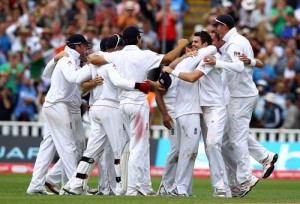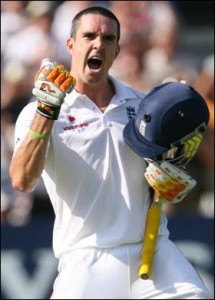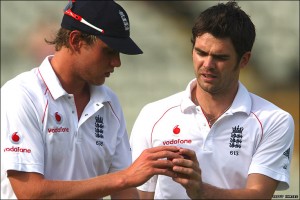England’s reign at the top of Test cricket was the most short lived of all time, as per the ICC rankings. The earlier occupants of that coveted position were Australia and India. Australia undoubtedly deserved it since they managed to win way more than lose, from the period of July 2001 – December 2009. India managed to hold on to that ranking from December 2009 – August 2011, having played more Test matches in the Indian subcontinent. Their successors, England though did not even come close to proving that they were the best in the business even as in their defence, they played most of their matches away from home. But when the home season arrived, they could beat West Indies which was customary but failed in what was supposed to be one of the marquee series of the year. Memories of 2008 do come afresh for any England fan!

The team impressed one and all with their performances from 2009 to 2011, which is why they have been hovering in the top 3 of the rankings. But come the series against Pakistan in the United Arab Emirates and it was back to square one. From the body language of the players, it was evident that they were victimised by their own success and thus Pakistan took full advantage of that by applying pressure on the opposition on pitches suiting them more. The result was a given – all the 3 Tests were lost duly under Andrew Strauss, which was a rare but a massive failure. This was so reminiscent of the 2005 season when Michael Vaughan’s England beat the No.1 team at home, Australia in the Ashes but could not follow up well as they lost to Pakistan in Pakistan a few months later. I guess the word ‘consistency’ does not fit in the dictionary of English cricket and history had repeated itself.
Not one or two players, but the entire team had to take accountability for the UAE debacle. Strauss let his team’s standards slip by not pressurizing the team director, Andy Flower and the England and Wales Cricket Board for more preparation ahead of that series. This is also poor administration as the board was perhaps not even interested to instruct players to go well in time to the UAE so that they get used to conditions which are so alien to them. Everyone knew that England was not going to have it that easy in the series, yet nothing was done to ensure that the series did not turn out to be disastrous. UAE is not like Australia, New Zealand or South Africa where England can make use of the conditions in their favour without too much of effort. But I am guessing that no one could foresee the problems and arrogance had certainly entered in the team setup which led them to live in the illusion that since they were the ‘World No.1’ team, they had the ‘aura’ to give any opposition sleepless nights regardless of where the match was taking place.
Even if the preparation was not up to the mark, there seemed to be a lack of understanding amongst all the players as to how to play Pakistan’s multi-dimensional attack, which has Saeed Ajmal as their lead spinner. Since England’s major strength is their bowling, they had to focus on their batting to ensure that the bowlers are supported well enough. All the bowlers, in particular Stuart Broad, Graeme Swann and Monty Panesar did a decent job throughout the series but the same batting line up which troubled Australia in Australia, South Africa in South Africa failed to play Pakistan in UAE, which is as good as playing in Pakistan. Strauss was perhaps the lone ranger in almost all the 6 innings England batted in, while the others cannot really speak for themselves which also includes the now in controversy, Kevin Pietersen. Winning even one Test match might have given Strauss a breather, but a series whitewash for a World No.1 team is unacceptable. Ask India, in particular MS Dhoni!
Strauss did mention after the series that those defeats were amongst the ‘most painful’ of his career and that England must learn how to play in Asia. But those words could not inspire England to the extent that it was needed to, and thus they headed to Sri Lanka three months later with the attitude of starting as underdogs in the series. Sri Lanka is not the same force now especially at home, without the legendary Muttiah Muralitharan. This is something that actually was in England’s favour, yet this was their biggest opportunity missed. It is alright for even the best to fail once, but twice means that there is something wrong in the system.
If England had beaten Sri Lanka in that series, who knows, they could have still been No.1 at the moment. The first Test made everyone remind of the UAE series and the Barmy Army had nothing to cheer about as such. Their standards had gone down and clearly, this was not the same team which had confidently swept India aside 4-0 to become the best Test side in the world. Credit must not be taken away from the Lankans, but England could have performed way better. But fortunately for them, Kevin Pietersen returned to form and hit a second innings century to level the 2 match series, 1-1. Although this should have been a 3 match series as well, there were more questions raised rather than answers found after seeing England’s performance.

For example, is Andrew Strauss the same force that he was before? His last hundred away from home came against Australia in the first Test of the 2010 Ashes series, while his recent hundred was at Nottingham against West Indies. His performance against South Africa completes two years of struggle, having the responsibility to juggle his batting and captaincy well enough. Being 35, Strauss does not have age on his side and a home series defeat to the Proteas does not strengthen his case much of being in the team for long. Nasser Hussain quit as England captain in the middle of the South Africa series in 2003 and went on to play international cricket for another 10 months. Whereas, Michael Vaughan did a Hussain in 2008 and that eventually turned to be his last Test series in England colours.
Strauss has to decide his future as quickly as possible, and in the best interests of the team. Being an only Test player also does not work in his favour at the moment. Alastair Cook is a suitable replacement for him, now that he is already ODI captain of the team. The tour of India is in November and England have to win that, if they have to begin their journey back to the top spot. England have lost 6 out of their last 11 Test matches, which means that Strauss’ expiry date as captain is almost due.
It is not just the captain, but the other players too who are responsible for the downfall. Kevin Pietersen’s attitude towards international cricket has changed dramatically because of his terrific experience with the Delhi Daredevils in the Indian Premier League. If any cricketer would think practically, why would he want to labour hard for his country when he is being given way more compensation in India, that too for a T20 tournament lasting just for 2 months? The IPL is certainly a big monster which has gobbled up Pietersen and this has hurt England badly. It is not just KP’s fault, but more of the English cricket board which is unable to balance an individual’s goals with the nation’s and also unable to balance the IPL and their cricketing schedule. The cash rich T20 league is a hit amongst almost every cricketer in the country and thus the ECB has to compromise a little to ensure that their players are available for national commitments for a longer period of time.

The Pietersen controversy was perhaps the primary reason why England lost the final Test at Lords against South Africa. Their focus was not so much on the victory, as much as solving that issue in the media. Although they eventually did leave him out of the starting XI, he could have been dealt with severely after the series since he is by far the best batsman in the team.
Ian Bell’s drop of form is a reflection of that of the team’s. Bell was considered to be one of the finest batsmen in the world in Test cricket following the series against India last year. But his noticeable failures in the Indian subcontinent and against South Africa have got him back to square one as well. He is good, but not amongst the modern greats. He has to work extremely hard on his batting if he has to succeed in India, which is no mean task. His contributions will be the key for the team’s revival in the longest format of the game. Perhaps he could take some inspiration from his ODI form which has been superb this year, when Kevin Pietersen has been absent from the team.
Alastair Cook and Jonathan Trott do form the core of the top order, but it is not that threatening to an opposition now because if one does well, the other fails. Usually Trott is the one who gives a good performance, while Cook’s inconsistency makes him fail and thus unreliable. None of England’s batters have been impressive, and to make things worse, the problem with the No.6 continues in the longest format of the game.
There are options such as Ravi Bopara, Jonny Bairstow and James Taylor but they have not matched up to the expectations of the best Test side in the world. Bopara is definitely not up to the standards of international cricket when it comes to Test matches, even as he is a safe bet in ODIs and T20s. Bairstow could be seen as a potential No.6 for England if Kevin Pietersen is back playing for England. If that is not the case though, then Bairstow and Taylor will in all probability make it to the starting XI since England hardly have any options. Taylor seems to have the Test match temperament which England need at the moment, but his inexperience might go against him in the short run.
Bairstow was a joy to watch at Lords, considering the pressure on him to deliver like Pietersen. His two half centuries were contrasting; the one in the first innings was a typical Test match knock, calm and sedate. But his second one was a ODI style knock, faster with calculated aggression which kept England in the hunt for a sensational win for a certain period of time. He does seem to have a future in all formats of the game, and the Yorkshire man’s talent just needs to be nurtured well to ensure that he does not slip in the future.
Matt Prior is definitely England’s numero uno choice in Test cricket as wicketkeeper batsman still, because he has been decent enough considering he bats at No.7. He did drop a relatively tough catch when Hashim Amla was on 2, in the second innings of the Lords Test which cost England the game since Amla finished with a hundred eventually. But he is an experienced campaigner and his selfless attitude towards the team can make many forgive him. His experience is required by England in tough times. If he can only learn how to play spin better and control his aggression when it comes to his batting, he could win more matches for England.

The bowling attack has seemed lethargic in the last one year, barring the Pakistan series. James Anderson has lost his pace to an extent, and thus his swing has not been very threatening to the opposition batsmen. He will definitely struggle in India as he has not changed his bowling style much since his last tour there in November 2008 and India is certainly a place he does not enjoy bowling in. Despite being the spearhead of this English attack; Anderson needs to bring in more variations as batsmen these days are smart enough to pick him.
Stuart Broad has the potential to trouble a new look Indian batting line up in their backyard and to replace Anderson as the leader of the attack. But he has been at his best only in patches in the last few series. It is high time that he gets back to his consistently menacing best if England have to start winning again. He will also have to double up his bowling effort, when Anderson is not at his best. Despite England having a bowling arsenal worth applauding, Broad is the man of demolition in most conditions for this team.
England have another problem and that is choosing their third fast bowler. Their usual strategy is to play three quickies and one spinner. Tim Bresnan has tried to fill that slot and has succeeded to an extent, but struggled against South Africa. But Steven Finn has taken advantage of Bresnan’s poor performances off late and perhaps was the only bowler who was lethal against the Proteas in the recent series. The experimentation must not continue for long, or it could be more harmful for England. In the coming series against India though, England would have to play Graeme Swann and Monty Panesar like they did against Pakistan and Sri Lanka.
In the ODIs, England are currently ranked No.1 as well and I do not see them hold on to that ranking looking at South Africa’s resurgence. 2012 has not been a memorable year for the inventors of the game and thus they would have to reinvent themselves. They have traditionally been a side which plays their best cricket when they are near the top spot, rather than when they are on the top. Such an attitude has to change and Andy Flower, the coach has to be the promoter of it.
There is tough competition these days in Test cricket as teams such as Australia and India are gunning for that No.1 spot which South Africa has at the moment. England’s next biggest assignment after the Indian tour is probably the Ashes series and they would want to retain the Ashes once again, for 4 years in a row. English cricket cannot remain what it is at the moment, if they have to win that at least and now is the time that drastic changes have to take place.

Leave a Reply